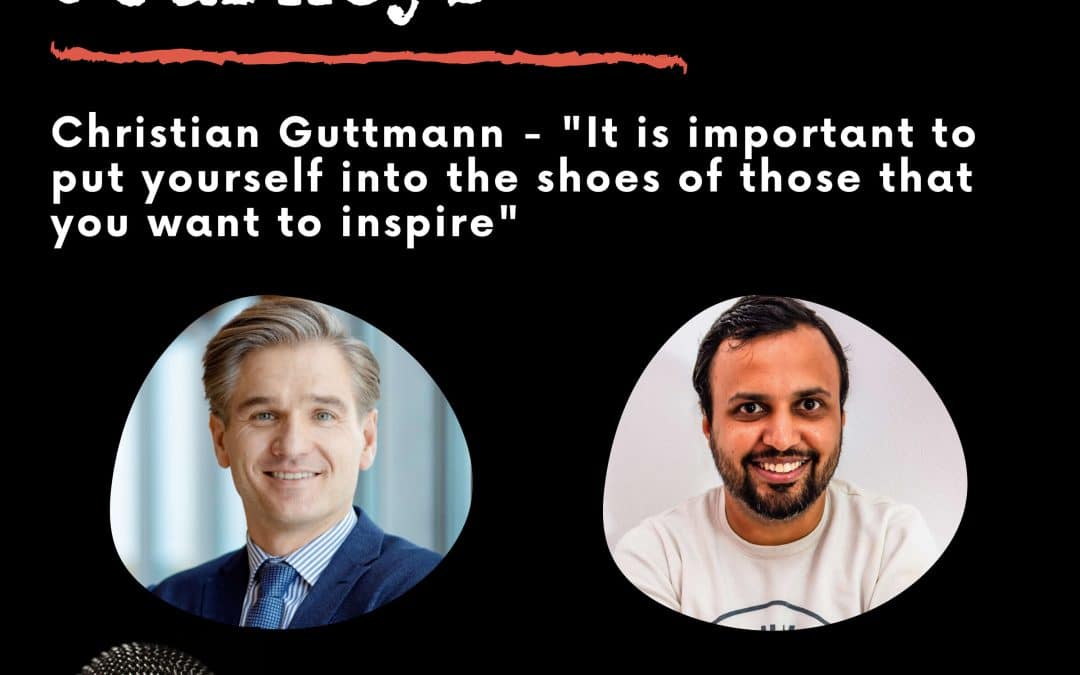This is the Leadership Journey series on the Choosing Leadership Podcast.
I believe we all have a lot to learn from each other’s stories – of where we started, where we are now, and our successes and struggles on the way. With this series of interviews, my attempt is to give leaders an opportunity to share their stories and for all of us to learn from their generous sharing.
In the interview, Christian and I spoke about our common love for technology and leadership, about computers and people, and about artificial and human intelligence. We talk about the importance of listening with empathy, understanding the cultural assumptions that lie behind all conversations, and the important role of curiosity when it comes to leadership.
You can find Christian at the below links
In the interview, we talk about
- I think I realized early on my big ambition of seeing big AI projects turning into something requires you to work very closely together with lots and lots of other experts with great people. All sorts of qualities that they can bring to the table. And of course, each of these individuals have different backgrounds, different ambitions, different ways of communicating a different view on the world.
- If you understand where people come from, if you can connect to those individuals. That’s a different quality that you need to bring in as a leader.
- Regardless of how big the company is, your responsibility at the end of the day is to really make sure you’re viable as a business.
- If you’re lucky, you also understand the assumptions, the underlying life assumptions of the other individual that you see that still today, clearly in the bigger setup where culture in which individuals or operating, plays a big role in how people make decisions and how they be
- It’s a good level of curiosity. I’m genuinely curious about another person, how they think what’s the background, what’s the interest, what’s the ambition. How do they want to change the world? What do they see as being responsible for which role. In this big theater we call life, do they consider it being their role, right?
- If you manage to have followers, it is important to have empathy, to put yourself into the shoes of those that you want to inspire, that you want to help and want to lead and want to manage and want to give a perspective.
- Focus on the purpose, focus on the meaning of doing this type of work. It’s answering that question. “Why am I here?”
- The expectation for me is not only to know the latest algorithm but to actually also understand how do I attract the people that know the latest algorithm, how do I keep them all happy and meaningful?

